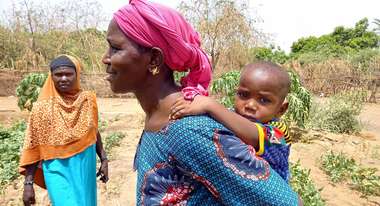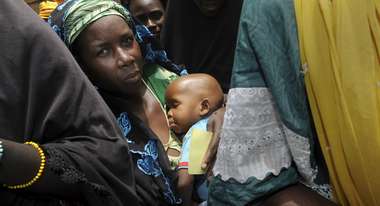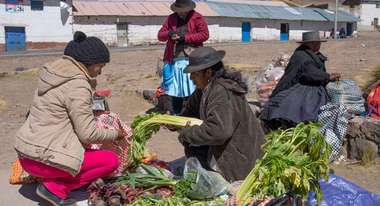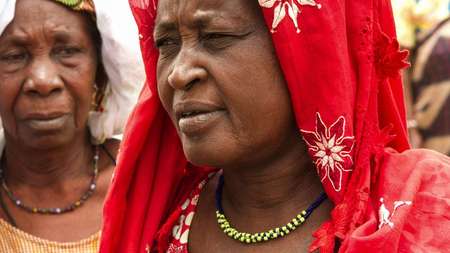
Agricultural Education for Women in Mali
Every day brings the same worries: Do I have enough food for my children? Where will I get water for drinking, washing, cooking, and watering the vegetable fields? Are the plants even still alive, or have pests destroyed the harvest again? The female smallholders in the region of Mopti are constantly fighting to escape hunger.
A Region in Crisis
These troubles are compounded by the political crisis in Mali. In addition to compromising the security situation, it is also threatening the rural population's food supply. Many sources of income have dried up: Trades and commerce are in recession, and the tourists are long gone.
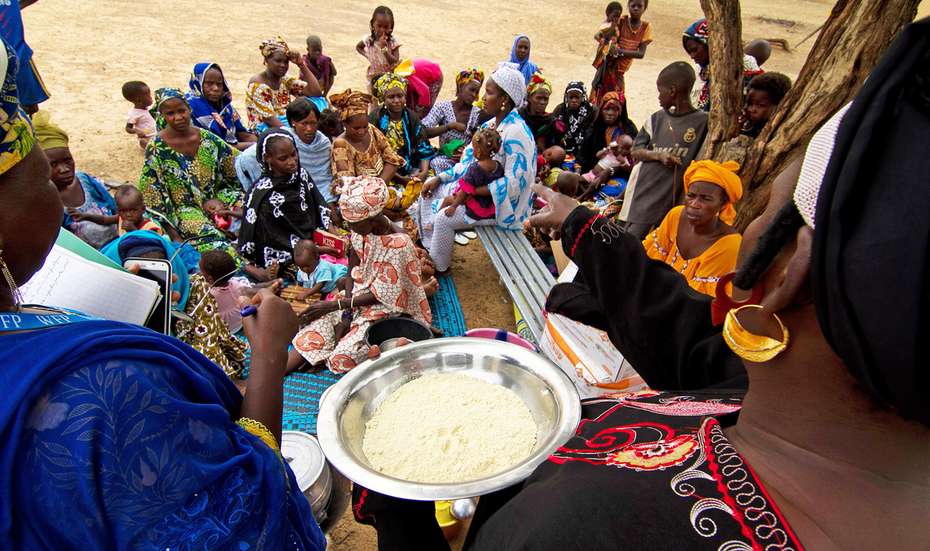
Most of the people in the region of Mopti live from agriculture and livestock breeding. Life is hard in its arid regions. Over 50,000 people are currently dependent on food aid, and almost 300,000 people lack a secure and sufficient food supply. Many try to cultivate vegetables to feed their families – unfortunately with limited success. Without rain, the water pumps are not of much use either. Pests and a lack of suitable equipment make a successful harvest more difficult.
No Land, No Education: Women at a Disadvantage
Women have difficulty even getting access to arable fields. The land technically belongs to the government, but it is customarily leased out through land owners, especially to men. Women often lack the knowledge to successfully represent their interests. Many never learned to read and lack connections to other women. Government programmes are therefore often not utilised.
In conjunction with local partners, Welthungerhilfe is now working together with a total of 1,500 smallholders from three communities and is supporting the groups according to their individual needs.
How Welthungerhilfe is Helping Smallholders in Mali:
- In order to improve the inadequate and unvaried diet, vegetable cultivation is to be diversified. Welthungerhilfe is training female farmers to cultivate nutrient-rich crops such as the indigenous Moringa plant.
- With the aid of new equipment, optimised techniques, and better seeds, cultivation is to become more effective and offer a secure income for the female farmers.
- The female farmers are learning how to apply for microloans, how to organise, and how to fight for their rights.
- For many of them, this also includes learning to read and to write.
Thinking About the Future: A Project With Long-Term Impact
Overall, the lives of approximately 9,000 people are being directly improved by the project; in addition, the rest of the three communities’ 250,000 residents will benefit indirectly, for example from access to healthy vegetables and the new knowledge. The purchasing power of the beneficiaries is projected to increase by 20%, and all families are expected to have access to sufficient and healthy nutrition. In order to ensure long-term effectiveness, local representatives are being trained in the villages in order to retain and transmit the knowledge gained. As a producer group, the female farmers can get better prices for their products and reduce processing expenditures. The women’s groups being established thus form the nucleus of a new source of strength for rural Mali.




